
Håkan Frisinger Award
FOR EXCELLENCE IN TRANSPORT RESEARCHThe Håkan Frisinger Prize for Excellence in Transport Research is awarded annually to a distinguished researcher active in the area of transportation, at a university or research institute of academic standing located in the Nordic countries.
- The objective of the prize is to promote and support research and development in the area of transport, to the benefit of academia, industry and society in general, but not benefitting any specific private company or government.
- The prize consists of an individual award of SEK 300,000 and a period as a visiting researcher at a university in Sweden, including a grant of SEK 500,000 to the university that receives the visiting researcher in a Volvo Research and Education Foundation guest researcher program.
Since the start 2000 Håkan Frisinger Award has been granted to more than 20 recipients. The recipients have been selected based on a broad understanding of the field of transport research, which includes engineering, the natural, social and behavioral sciences and the humanities, with a diversity of thematic profiles such as but not limited to: vehicle and fuel technologies; transport systems and planning; end-user and consumer needs, perspectives and behavior; environmental impacts and climate change; and transport economics and efficiency. We encourage multidisciplinary research approaches and cooperation between scientific disciplines.
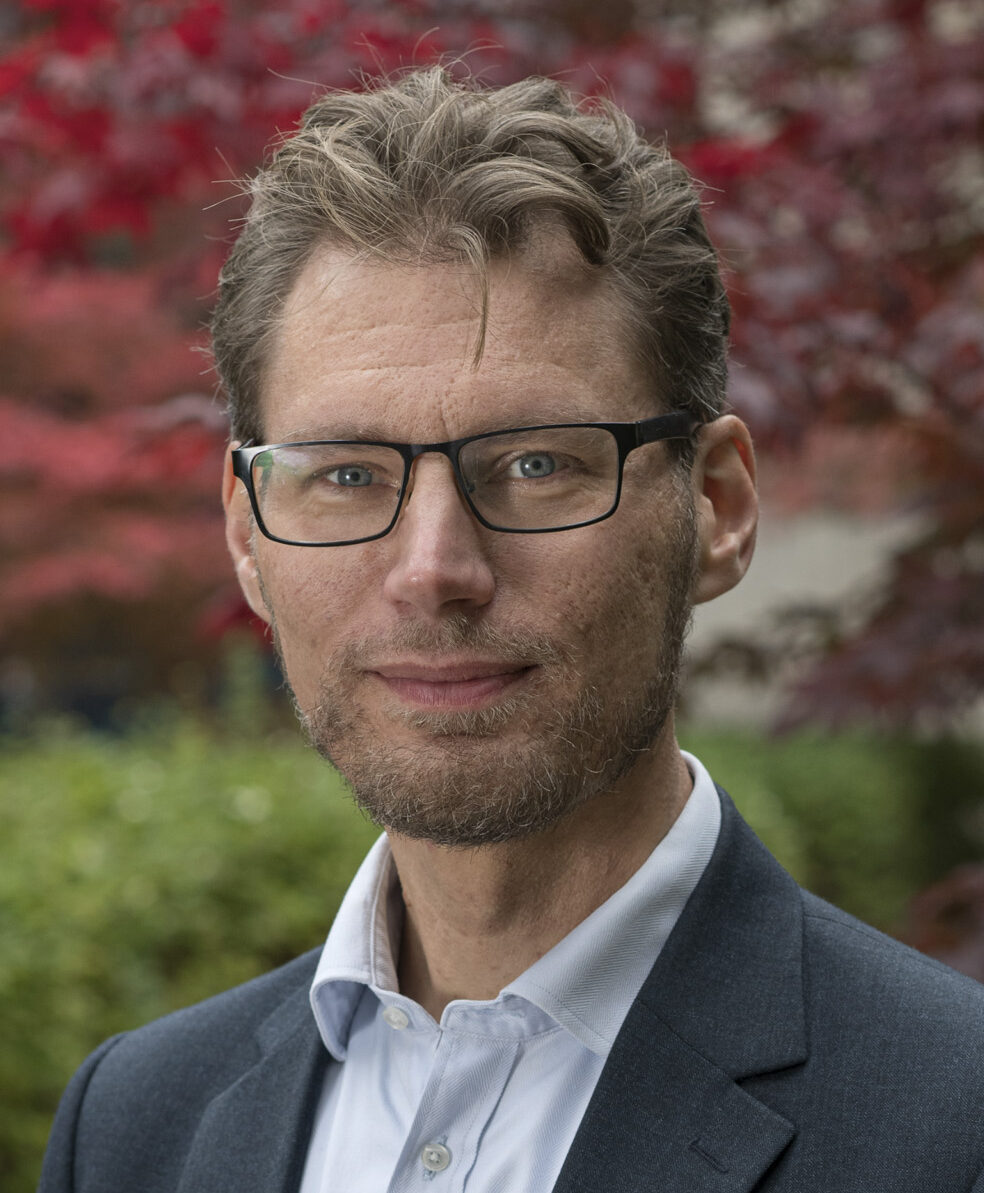
Doctor Björn Nykvist, 2025 year's winner of The Håkan Frisinger Award for Excellence in Transportation Research.
Call for Nominations is open!
Deadline 1 April 2026
Universities in Sweden ara welcome to nominate candidates for the Håkan Frisinger Award for Excellence in Transport Research 2026 and to apply for a VREF Visiting Researcher Grant for the nominated scholar. Deadline: 1 April 2026, 17:00 CEST
A review panel, the VREF Scientific Council, and the VREF Board will assess nominations based on scientific excellence, contribution to transport research, societal impact, and the quality of the proposed visiting researcher programme. Full details on eligibility, required documents, and submission instructions are available in the Call and Guidelines.
For questions, please contact the VREF Secretariat at: secretariat@vref.se.
Since the start 2000 Håkan Frisinger Award has been granted to more than 20 recipients. The recipients have selected based on a broad understanding of the field of transportation research, which includes engineering, the natural, social and behavioral sciences and the humanities, with a diversity of thematic profiles. The prize consists of an individual prize of SEK 300,000 and a period as a guest researcher at a university in Sweden, including a grant of SEK 500,000 to the university that receives the guest researcher in a Volvo Research and Education Foundation guest researcher program.
all previous recipients

The Håkan Frisinger Prize is awarded annually to a prominent transport researcher active at a Nordic university or research institute. 2025 VREF awarded doctor Björn Nykvist, Senior Research Fellow and Team Leader in Energy and Industrial Transitions at the Stockholm Environment Institute (SEI), the Håkan Frisinger Prize for Excellence in Transportation Research for 2025.
Björn Nykvist is awarded for his significant and interdisciplinary contributions to understanding the electrification of the transport sector, particularly the crucial role of battery electric vehicles (BEVs) in climate policy and energy system transformation.
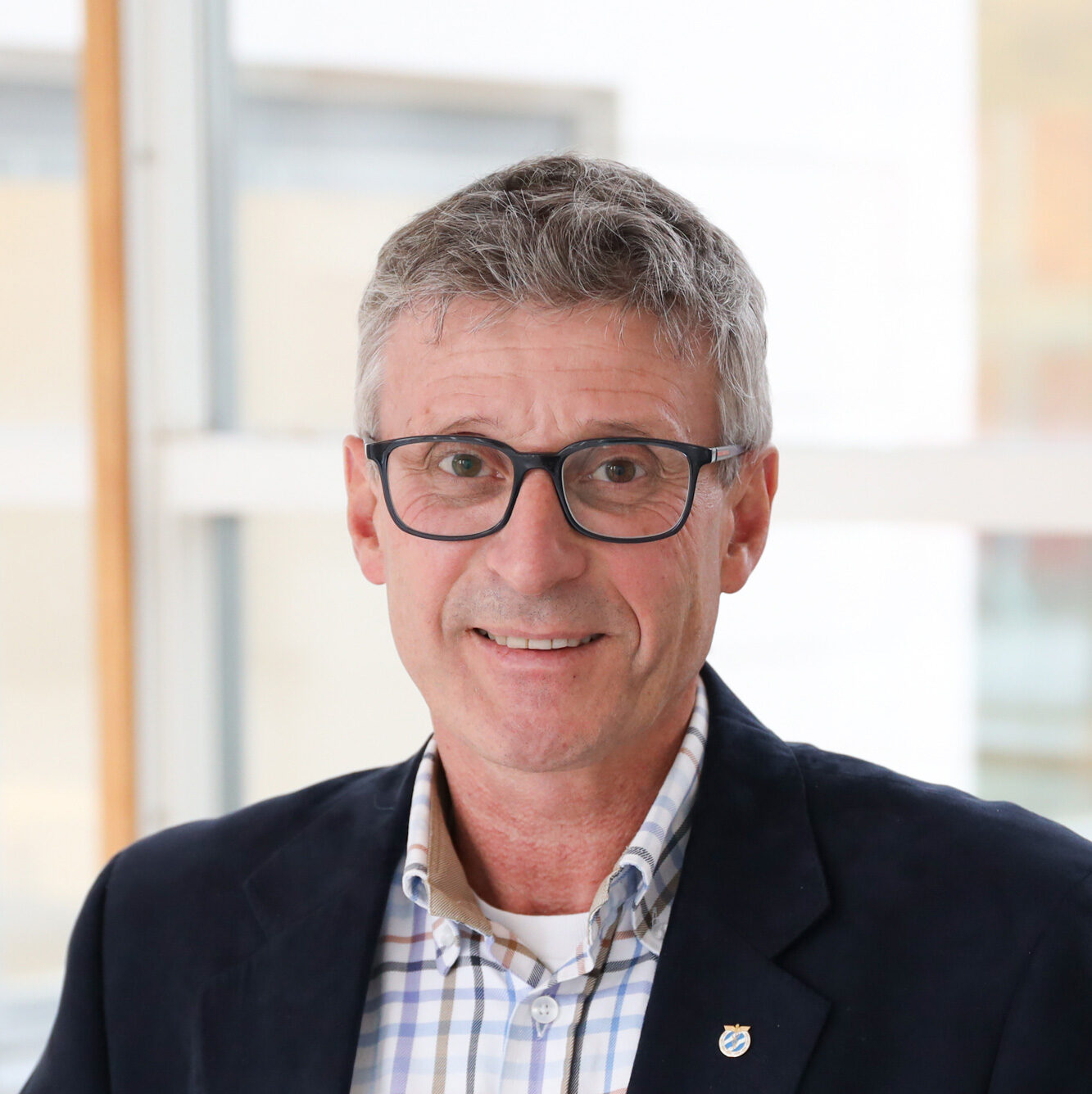
The Håkan Frisinger Prize is awarded annually to a prominent transport researcher active at a Nordic university or research institute. This year, Johan Woxenius, Professor of Maritime Transport Management and Logistics at the University of Gothenburg is the recipient.
– Johan Woxenius’ interdisciplinary research and extensive collaboration with various stakeholders have led to significant societal benefits, for example by improving the connection between container ports and the surrounding regions via rail. His proposed program at Lund University will provide excellent opportunities for academic collaboration as well as supervision and teaching in sustainable freight transport, says Thorbjörn Holmström, Chairman of the Board of Volvo’s Research and Educational Foundations (VREF).
In its motivation, VREF’s board also highlights that Johan Woxenius has a high international scientific reputation and a unique ability to explain complex contexts and challenges to the general public.
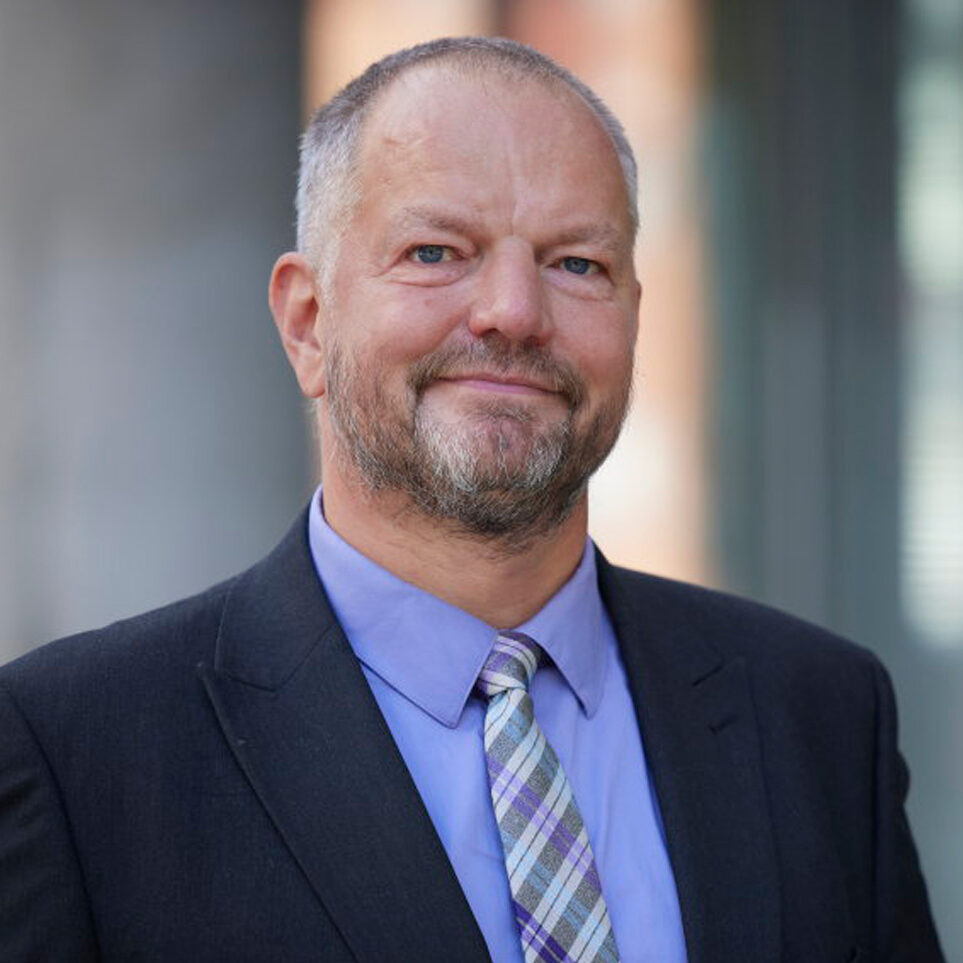
Håkan Frisinger’s Foundation for Transport Research is awarding the 2023 scholarship to Professor Lars Eriksson at Linköping University. Lars Eriksson receives the scholarship for strong scientific merits and significant contributions to the transport industry.
Lars Eriksson is professor of vehicle systems at the Department of Systems Engineering at Linköping University. He has a long tradition of making research results easily accessible and has several collaborations with industry in general models and product-oriented research projects that resulted in various solutions used by global truck manufacturers.
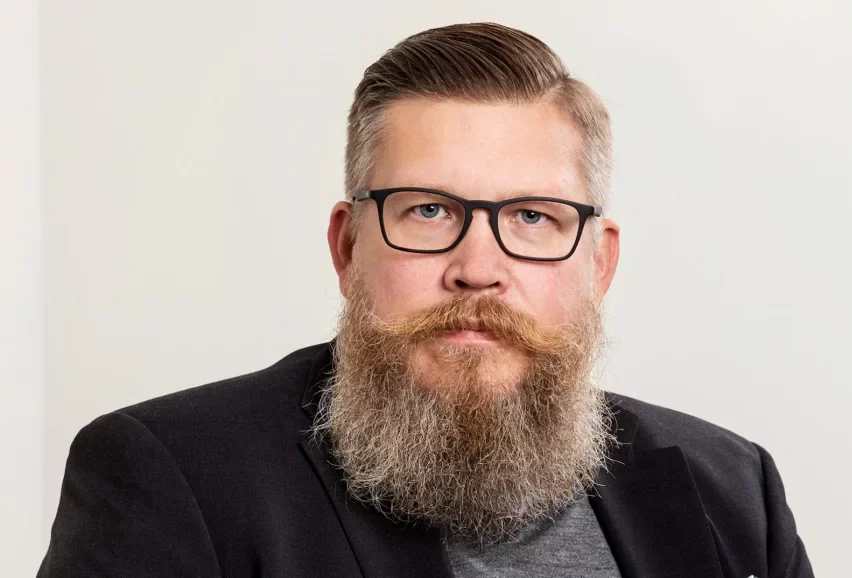
The 2022 scholarship from Håkan Frisinger’s Foundation for Transport Research was awarded to Simon Matti, Professor at Luleå University of Technology. The Foundation has also decided to grant SEK 500 000 SEK for the VREF Visiting Researcher Programme 2022 to Chalmers University of Technology.
Simon Matti was awarded the scholarship of SEK 300 000 for his extensive research work, while the grant of SEK 500,000 for the VREF (Volvo Research and Educational Foundations) Visiting Researcher Program is given to Chalmers University of Technology which hosts the award-winning guest researcher. Simon Matti’s research concerns strategy and policy for climate and the environment, which is very relevant for the field of transport research. Prof. Matti focuses on general political attitudes, political legitimacy and political behavior, and also has well-documented experience of interdisciplinary research.
The proposed program at Chalmers University of Technology provide good opportunities for fruitful interdisciplinary collaboration.Matti’s experience of general political attitudes and behavioral economics will contribute to research on transport and mobility, especially in terms of consumption patterns and adjustment.
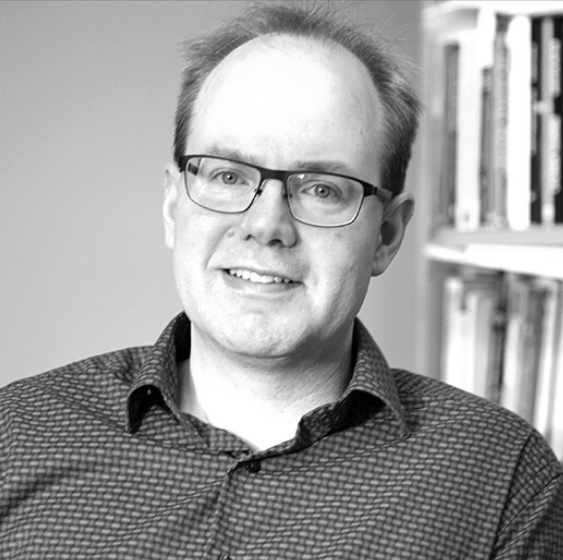
Professor Johan Holmgren, Molde University, Norway; Visiting Program scholarship: Malmö University, Sweden.
The Håkan Frisinger Foundation for Means of Transport Research awards its 2018 scholarship to Johan Holmgren, Professor of Transport Economics at Molde University College, Norway for his research on sustainable investments in infrastructure.
Johan Holmgren is awarded the scholarship of SEK 300,000 for his extensive research work, while the grant of SEK 500,000 for the VREF Visiting Researcher Program is given to Malmö University, which hosts the award-winning guest researcher.
“From a scientific basis in transport economics, Johan Holmgren has made important contributions both in empirical works and policy-related publications. Several of his studies have focused on the so-called wider ‘benefits of accessibility’, which is highly relevant for ensuring sustainability in the development of infrastructure and making sure that investments are efficient to society,” says the Board of Håkan Frisinger’s Foundation in their motivation.
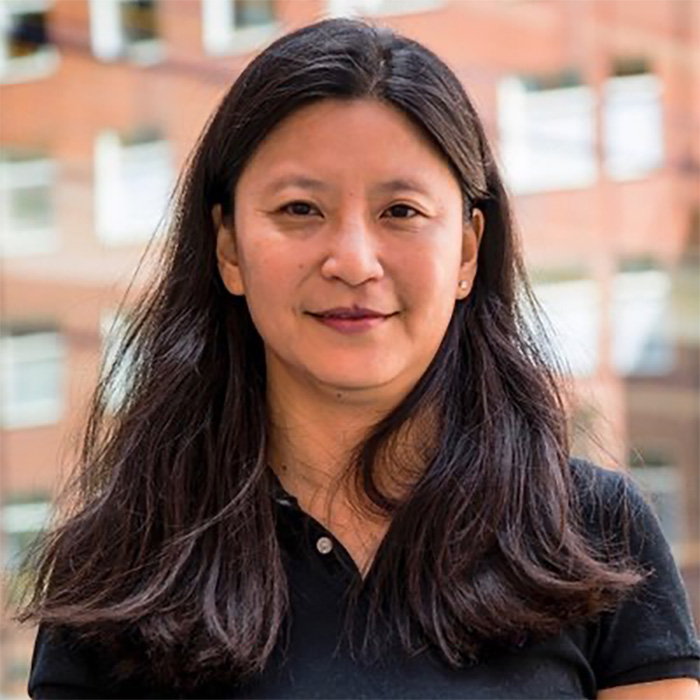
The Håkan Frisinger Foundation for Means of Transport Research awards its 2018 scholarship to Dr. Sonia Yeh, Professor in Transport and Energy Systems, at the Department of Space, Earth and Environment, Chalmers University of Technology. The scholarship with an amount by 250 000 SEK, rewards Sonia Yeh for her research on alternative transport fuels, consumer behaviour and urban mobility as well as work with sustainability standards.
Dr. Sonia Yeh’s expertise is in energy economics and energy system modeling, alternative transportation fuels, sustainability standards, technological change, and consumer behavior and urban mobility.
Between 2007 and 2014, she co-led a large collaborative team from the University of California Davis and UC Berkeley advising the U.S. states of California and Oregon, and British Columbia, Canada to design and implement a market-based carbon policy (Low Carbon Fuel Standard (LCFS) and Clean Fuel Standard (CFS)) targeting GHG emission reductions from the transport sector. She received Academic Federation Award for Excellence in Research by the UC Davis in 2014 and was appointed as Adlerbertska visiting professor at Chalmers University of Technology in 2015. She served as Fulbright Distinguished Chair Professor in Alternative Energy Technology in 2016-2017.
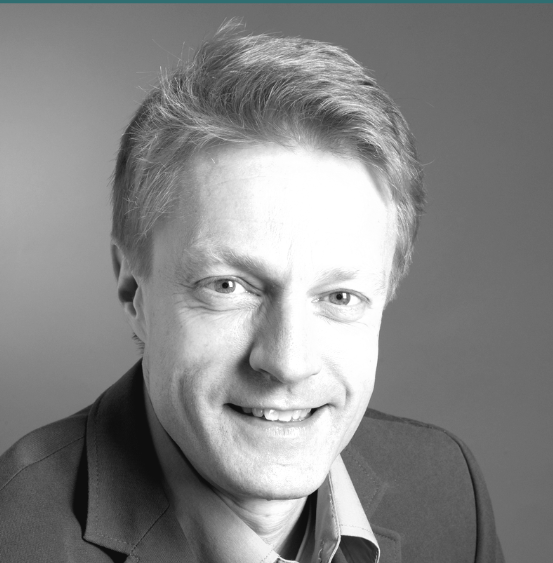
The Håkan Frisinger Foundation for Means of Transport Research awards its 2017 scholarship to Professor Jonas Sjöberg, Chalmers University of Technology. The scholarship with an amount by 250 000 SEK, rewards Jonas Sjöberg for his extensive research work on safe autonomous vehicles with low emissions for a sustainable future.
The automated transport systems will revolutionize the efficiency of transportation of people and goods, and at the same time dramatically reduce environmental impact. This topic concerns optimization of the overall transport performance by taking advantage of new possibilities for efficient communication, accurate position estimation, and smart decision systems.
Jonas Sjöberg has successfully developed the area electromobility, active safety and autonomous driving. Along with his research group at Chalmers, he has worked on system aspects, dimensioning, modelling and control both in the area of hybrid powertrains, and active and autonomous vehicles.
Thanks to the results, “best” design of the electric powertrain, such as control strategy can now be calculated more exactly instead of using rough estimates as before. Jonas Sjöberg has led the academic part of several industrial PhD projects, one of them within the programme “Intelligent Vehicle Safety Systems” which resulted in patents, and later led to the development of an emergency brake function that mitigates accidents in left turns. The later years of research has been focused on decision making and other issues related to autonomous driving.
Jonas Sjöberg is Professor of Mechatronics and Head of the Mechatronic research group. Dr. Sjöberg’s research involves mechatronics, and mechatronic related fields, such as signal processing and control. Within these fields, he focuses on model based methods, simulations, machine learning for dynamic systems, system identification, and optimization for design and product development of mechatronic systems. Applications are, for example, Automotive Active Safety and Hybrid Electric Vehicles. Dr. Sjöberg also leads and supervises research and education at the undergraduate and graduate levels.
The Håkan Frisinger Foundation for Transportation Research has awarded its 2016 scholarship of SEK 250,000 to Professor Louise Olsson. Louise Olsson is a Professor at the division of Chemical Engineering, where she also is the manager for the Chemical engineering division.
Prof. Olsson and her group are also associated with Competence Centre for Catalysis (KCK). Her research group works with catalysis for emission cleaning and alternative fuel production. More specifically, the aim is to combine experiments and kinetic modelling for increasing the fundamental understanding of the reactions occurring on the catalytic surfaces and also to be able to predict the conversion after the catalyst. Louise group basic science projects are combined with applied projects together with industry.
The scholarship was awarded by the Håkan Frisinger Foundation at a seminar jointly organised by the University of Gothenburg, Chalmers and the VREF held on 11 May, 2017.
The Håkan Frisinger Foundation for Transportation Research has awarded its 2016 scholarship of SEK 250,000 to Professor Louise Olsson. Louise Olsson is a Professor at the division of Chemical Engineering, where she also is the manager for the Chemical engineering division.
Prof. Olsson and her group are also associated with Competence Centre for Catalysis (KCK). Her research group works with catalysis for emission cleaning and alternative fuel production. More specifically, the aim is to combine experiments and kinetic modelling for increasing the fundamental understanding of the reactions occurring on the catalytic surfaces and also to be able to predict the conversion after the catalyst. Louise group basic science projects are combined with applied projects together with industry.
The scholarship was awarded by the Håkan Frisinger Foundation at a seminar jointly organised by the University of Gothenburg, Chalmers and the VREF held on 11 May, 2017.
What are the factors that influence us in choosing the mode of transport to take in our everyday lives? The Håkan Frisinger Foundation for Transportation Research has awarded its 2014 scholarship to Professor Margareta Friman at Karlstad University. Margareta Friman will receive the scholarship of SEK 250,000 for combining behavioral science with transportation research, and thus has increased understanding of the factors that influence the decisions and choices of transport people make.
Part of the Foundation Board’s citation was as follows: “Margareta Friman’s research, which primarily focuses on consumer and transportation psychology, has generated extensive national and international attention. She has been widely published in scientific journals and is often invited to speak at conferences”.
Alongside her high publishing rate, Margareta Friman is engaged as an expert both within and outside academia, and has been highly praised by external evaluators for her work as a director and manager of the Service and Market Oriented Transport Research Group (SAMOT) at Karlstad University.
2013
Professor Lars Nielsen, Linköping University
2012
Professor Ingemar Denbratt, Chalmers University of Technology
2011
Professor Annika Stensson Trigell, the Royal Institute of Technology
2010
Professor Bengt Johansson, Lunds University
2009
Professor Magnus Skoglundh,
Chalmers University of Technology
2008
Associate Professor Pål Börjesson, Lunds University
2007
Professor Wolfgang Kropp, Chalmers University of Technology
2006
Professor Marcus Aldén, Lunds University
2005
Professor Bo Egardt, Chalmers University of Technology
2004
Professor Michael Patriksson, Chalmers University of Technology
2003
Professor Bengt Andersson, Chalmers University of Technology
2002
Assistant Professor Dag Wedelin, Chalmers University of Technology
2001
Professor Per Lövsund, Chalmers University of Technology
In memorian
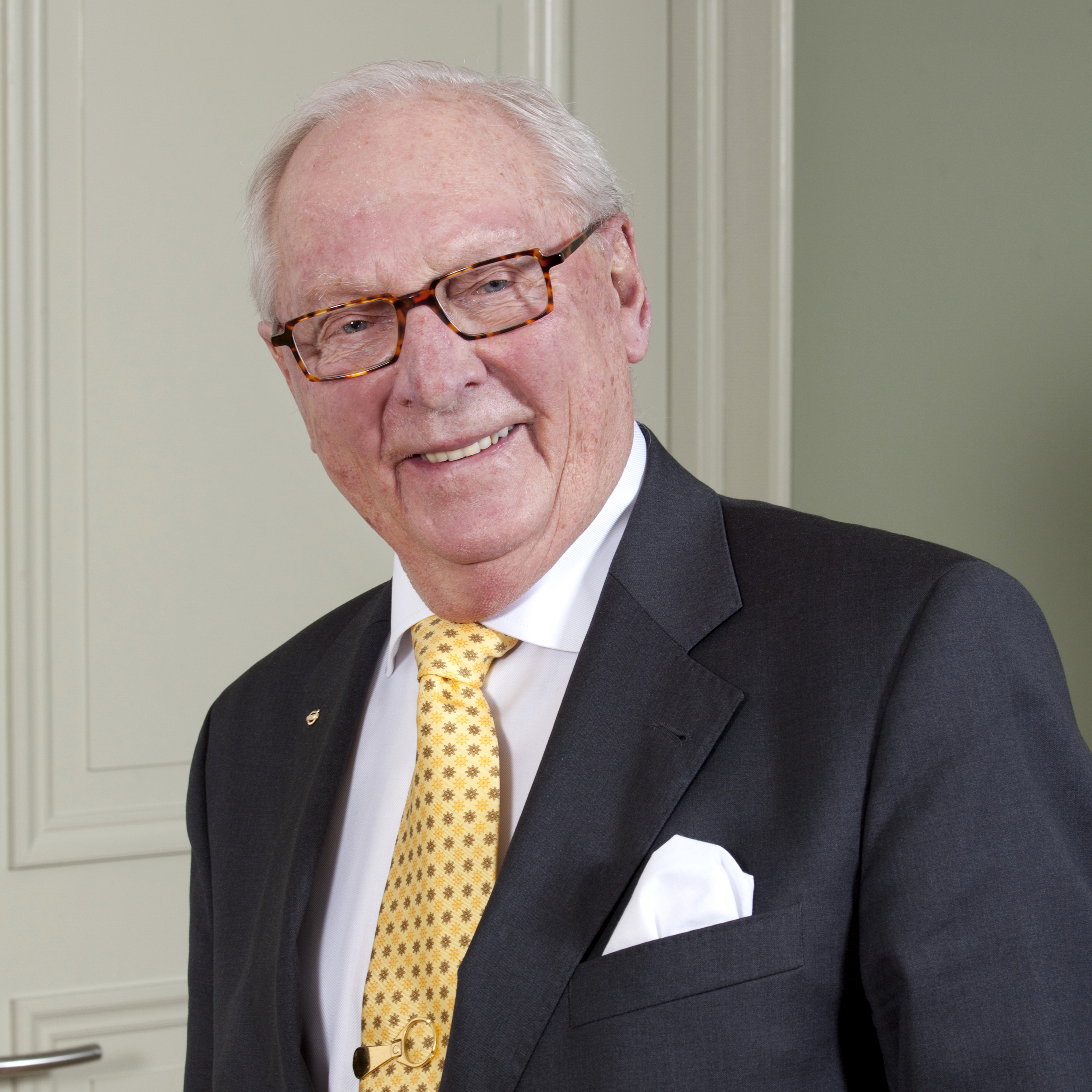
Håkan Frisinger, 1928-2021
A leader who made a difference
Håkan Frisinger worked for Volvo for almost 50 years. As CEO of AB Volvo in the 1980s and chairman of the board in the company in the 1990s he was known as a leader who made a difference, not the least through a major contribution to strengthening the connection between Swedish research and the transport industry.
When he stepped down in 1999 Volvo’s Annual Shareholders Meeting voted to honor him by founding Håkan Frisinger’s Foundation for Transport Research, which since then is one of the Volvo Research and Educational Foundations. Today the Håkan Frisinger Award has been granted to more than 20 recipients. The recipients have selected based on a broad understanding of the field of transportation research, which includes engineering, the natural, social and behavioral sciences and the humanities, with a diversity of thematic profiles such as but not limited to: vehicle and fuel technologies; transportation systems and planning; end-user and consumer needs, perspectives and behavior; environmental impacts and climate change; and transport economics and efficiency.
It is with great pride and humility that VREF continues to work in the spirit of Håkan Frisinger.
Our dear friend and colleague has left us at the age of 92
Håkan Frisinger was an individual and a leader that made a difference. Through his lifetime commitment to Volvo and the Håkan Frisinger Foundation for Transport Research he made a major contribution to strengthening the connection between Swedish research and the vehicle industry
Håkan Frisinger was born in Skövde in 1928 and was raised as one of five sons of Anna and Anders Johansson. Anders Johansson was an entrepreneur, and the family had high ambitions for their boys. The goal was that they would all graduate from high school. To achieve this, they had to work alongside their studies to contribute to family expenses. That is how Håkan Frisinger stepped into the world of Volvo – in the workshop at the engine factory Volvo Skövdeverken – at the early age of 14.
In 1951 Frisinger completed a degree in Mechanical Engineering at Chalmers, which remained an important focal point for him for community and friendship. In 1953 he married Annakarin (born Lindblom) who became his lifelong love.
Following his studies, Håkan Frisinger returned to Volvo Skövdeverken, as one of four civil engineers amongst the facility’s 4000 employees, first as Head of Materials Management and later as a Workshop Engineer. The early 1950s was a time of crises – the Korean War and the Suez Crisis – that forced Volvo to carry out mass layoffs. But it was also a time of optimism and innovation. For example, Håkan Frisinger quickly put into practice the use of forklifts and pallets at the factory.
Lead Engineer Frisinger
In 1959 Håkan Frisinger left Skövdeverken to become the Factory Manager at Bahco Verktygsverkstäder in Enköping. But he soon returned to Skövdeverken in 1960, as Assistant to the Site Manager, and was promoted in 1963 to Lead Engineer and the facility’s Technical Production Manager.
In 1966 Frisinger transferred to Volvo Gothenburg, as Director and Head of Product and Production Coordination. He was thrust into a turbulent Volvo, where both his technical expertise and his personality were put to good use in forging new pathways forward. In 1969 his area of responsibility was expanded when he became the Director of Product Planning for Cars.
In May of 1971 Frisinger was promoted to Director of AB Volvo, Köpingverken. The facility, which produced gearboxes, had experienced an extended period of problems and was in crisis. Two years later, under Frisinger’s leadership, the facility was transformed into a model of achievement within the corporation. In addition, Håkan’s family was happy in Köping. Frisinger was able to indulge and take it a bit easier, and was freed of the head office and intrigue. “One could walk in the parks in the morning and sneak out through the back door at 4pm to play golf – that was a lovely time,” he said in a 2007 interview with the Chalmers alumni association’s publication “Career and Community.”
Home from the USA to a Volvo in crisis
In 1973 Håkan Frisinger attended the Advanced Management Program at Harvard Business School in the United States. When he returned home to Sweden problems had accrued at Volvo in Gothenburg, especially in the cars division. The company had been divided into car and commercial-vehicle divisions, but also needed a knowledgeable and fearless director. Frisinger was difficult to convince, but in 1978 he was promoted to the position of Director for the recently established Volvo Cars, where his responsibilities included overseeing product development and production as well as representation in corporate management.
When Renault became a Volvo stockholder, Frisinger was appointed CEO for Volvo Cars, and in January 1984 he was appointed CEO for the controlling company AB Volvo. He became the Board Chair of several Volvo companies, and outside of Volvo he was appointed board memberships at Atle and Iro, and advisor to his good friend Ingvar Kamprad at IKEA.
Successful leadership
In the 1980s, Volvo Cars was characterized by large development projects. In 1979 Håkan Frisinger had chaired a crisis meeting where the crucial decision regarding the continued development of what became the 700 series was made. Costs had skyrocketed and the project was off schedule, but Håkan Frisinger maintained that there was no other choice than to keep going and complete the work. His decision, and his leadership thereafter of the development of the 700 series, was of paramount importance for Volvo Cars.
“Håkan Frisinger took over a car company that was in very bad shape: it was do or die” said Sten Langenius, who was Frisinger’s colleague and CEO of Volvo Trucks at the time. When asked how he would describe Frisinger as a leader Langenius quickly replied, “Håkan was ‘best in class’ – a label that applied to him at Chalmers and that he brought to Volvo’s car production when he took over. And that was a necessity for getting Volvo Cars back on track. He established ambitious and clear goals, with great self confidence and an infallible memory. He was always fearless and just, happy and positive, and never arrogant.”
Honors from Chalmers University
In 1986 Håkan Frisinger received the Gustav Dahlén Medal from the Engineering Society at Chalmers for his achievements in the Volvo group. “The award was unexpected, but it was an honor and something I cherish as much as the honorary doctorate I received from Chalmers a year or so later,” Håkan told Karriär & Gemenskap in 2007.
The jury for the Gustav Dahlén Medal motivated the award stating: “For his efforts, that have been of crucial importance in dramatically improving quality and productivity and turned Volvo Cars’ deficit into unparalleled profit, Håkan Frisinger has – from the perspective of the individual worker – motivated and educated to improve quality – an effort where he has personally spoken with thousands of people. Håkan has organized product development – especially adapting design to suit the production method – in a way that improved function, quality and production time. Håkan has also led initiatives to rationalize material handling in a way that has liquidated millions of Swedish crowns of previously locked-in capital. His innovative thinking regarding production technology and organization has reformed working methods, to suit consumer demand for freedom of choice as well as the need to maximize the use of equipment and facilities in manufacturing.”
In 1988 Håkan Frisinger was awarded an honorary doctorate from Chalmers for his “innovative way of systematically using his extensive experience with the many facets of industrial processes.” He also led the funding campaign Build a Better Future with Chalmers that raised close to 350 million Swedish crowns for investments in environmental and bio-technology and strengthened bonds between Chalmers and the private sector.
The pensioner that returned
Håkan Frisinger retired from Volvo in 1987, at the age of 59. He and Annakarin moved to France and later Lausanne, and Frisinger accepted board seats in a number of Swedish companies, including IKEA’s Ingka Group.
But Frisinger’s sojourn away from Volvo wasn’t very long this time either. In December 1993 Frisinger returned as a Member of the Board when Pehr. G. Gyllenhammar left the board, and in 1997 he replaced the deceased Bert-Olof Svanhom as Chairman of the Board of Directors. Frisinger didn’t step down as Chairman of the Volvo Board (and member of the Atlo and Iro boards) until 1999, after he had turned 70 and had worked almost exclusively for Volvo since he graduated from Chalmers.
The same year, Volvo’s Annual Shareholders Meeting voted to honor their retired board member by founding Håkan Frisinger’s Foundation for Transport Research. Frisinger himself was appointed Honorary Chairman. The rest of the board and its scientific advisory committee were the same as those for Volvo’s other research and education foundations.
Self-evident focus
The Swedish Research Council was asked to identify relevant fields of research for the new foundation.
- It was actually self-evident. Håkan had dealt with transport issues essentially his entire life, close to industrial production, as a company leader, and in the later years of his career with Volvo with a corporate-wide perspective. And always with a genuinely broad interest, said Arne Wittlöv who was VREF’s Chairman at the time.
The first years’ stipends were awarded at a lunch in Volvo’s offices.
- Håkan was always very interested, appreciated meeting stipend recipients and asking about and discussing their work. He usually also made a very personal speech to the awardees, often with a reflection or an anecdote from his many years of experience. I think that everyone appreciated the award ceremonies. They were interesting and open conversations, said Wittlöv.
Warm and engaged
Later, the format for awarding the stipends was changed, allowing recipients to organize a seminar and to invite interesting practitioners in their field.
- These were also valued affairs and Håkan engaged with every stipend recipient. That’s how I remember Håkan – he was a warm person with a true interest in others, said Fabienne Niklasson, the Administrative Secretary at VREF who was in contact with Frisinger annually in connection with all of the stipend award ceremonies since 2005.
The last time Håkan Frisinger attended a stipend award ceremony he was 90 years old and was honored by the participants with flowers and tributes, which brought him to tears. The stipend recipient that year was Professor Jonas Sjöberg from Chalmers.
- In 2017 I received Håkan Frisinger’s stipend for my transport research on autonomous and safe vehicles. It was a very nice awards ceremony in the end of May, and Håkan attended. He hadn’t done so the past few years, but now he was healthy and full of energy. I had never met him before and never had the opportunity again, but that one time was enough to leave a lasting and impressive impression of him. The presentation that I made on my research was not at all boring for him. He had both questions and comments that were, for a researcher, very stimulating. After the presentation he just said 'continue, do more things like this', and that is what I am trying to do now. It must have been good for Volvo to have a leader that inspired such enthusiasm, said Jonas Sjöberg.
A direction that has made a difference
In VREF’s Board minutes from 2000, one can read that the year’s research funding applications were a testimony to the fact that “the Board’s new focus on ‘Future Urban Transport’ was right.”
“The continuous growth of major cities at a global level makes this field of research, which was specified and has been successively refined by the Board, responsive to a growing demand for knowledge.”
Today – 22 years later – the Håkan Frisinger Award has been granted 18 times, to 19 recipients. The stipend recipients have been selected based on a broad understanding of the field of transportation research, which includes engineering, the natural, social and behavioral sciences and the humanities, with a diversity of thematic profiles such as but not limited to: vehicle and fuel technologies; transportation systems and planning; end-user and consumer needs, perspectives and behavior; environmental impacts and climate change; and transport economics and efficiency. Researchers have been encouraged to apply interdisciplinary research methods and collaborate across scientific disciplines.
It is with great pride and humility that VREF continues to work in the spirit of Håkan Frisinger.